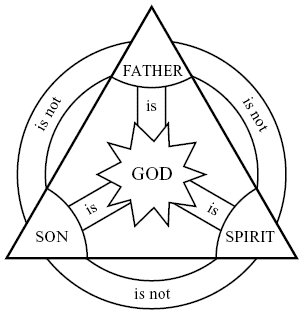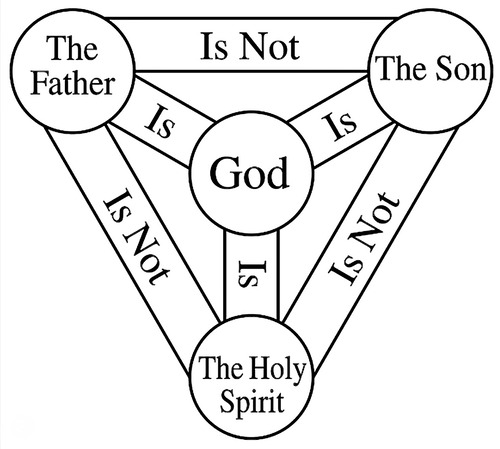Why Does God Show Grace to Some Sinners and Send Others to Hell?
Sure we know God is just and holy. We know, too, all of humanity has sinned and fallen short of God’s glorious standard. Given these truths, a perplexing question we can ponder over is this: Why does God show grace to some sinners and send others to hell? Shouldn’t He either punish every sinner or extend grace to all? Anything else appears either capricious or unfair. And yet, the Bible is clear some will inherit eternal life while others face everlasting hell.
Why does God show grace to some sinners and send others to hell?
The dilemma strikes at the very heart of how we understand God’s character and dealings with humanity. As we wrestle with this difficult question, here are some key considerations for us to mull over:
-
NO ONE RECEIVES INJUSTICE FROM GOD: After all, every one of us has sinned and deserves hell. Scripture is clear all have sinned and fallen short of God’s glory (Romans 3:23). The wages of sin is death (Romans 6:23), and the righteous judgment of God is to condemn sinners to eternal separation from Him in hell (Revelation 20:11-15). In this sense, if God were to send all of us to hell, He would be acting justly, as we have all earned that punishment through our rebellion against our holy Creator.
-
NONE OF US MERITS GRACE: Grace, by definition, is unmerited favour. In other words, if we merited it, it would not be grace. The late RC Sproul states it eloquently: “Grace, by definition, is something God is not required to grant. He owes a fallen world no mercy. If we cried out for justice at His hands, we could all receive the just condemnation we deserve. Justice is what we deserve. Grace is always and ever undeserved. If we deserved it, it would not be grace.”
-
SOME OF US DO RECEIVE GRACE: While all humanity stands condemned before a holy God, the amazing truth of the gospel is that God, in His infinite love and mercy, has chosen to extend the gift of salvation to some (Ephesians 2:8-9). This grace is not earned or deserved but is a free gift made possible through faith in the sacrificial death of Jesus Christ on the cross (Romans 5:8).
-
GOD CAN BE JUST AND STILL NOT SHOW GRACE TO EVERYONE: As Sproul highlighted, there is no injustice in God granting mercy to some while allowing others to receive the just consequences of their sin. If God chooses to pardon one guilty person, it does not make those He does not pardon any less guilty or deserving of condemnation. God is not obligated to extend grace to all; rather, the wonder is He extends grace to anyone at all.
So, why does God show grace to some sinners and send others to hell? Paul directly anticipates this question in Romans 9:14-15, asking “What shall we say then? There is no injustice with God, is there? May it never be! For He says to Moses, ‘I will have mercy on whom I have mercy, and I will have compassion on whom I have compassion.'” Paul is making it clear there is no injustice with God in showing mercy to some and not others, because no one deserves or has a claim on God’s grace and compassion in the first place. God is completely just in extending undeserved grace to some while allowing others to receive their justly deserved condemnation.
The beauty of grace is it is freely given—not to those who are owed it, but to those who are not. In extending grace to some, God’s justice toward others is in no way diminished. May we never lose sight of the profound reality we all deserve condemnation. And any salvation we receive is an undeserved gift from a loving and merciful God.
Related Reads:
Editor's Pick

Should We Stop Using Male Pronouns for God? Why Do We Say No?
A friend of ours arrived eagerly at his first theology class in seminary. But he quickly discovered something troubling: the [...]

Did Old Testament Law Force Women to Marry their Rapists?
**Editor’s Note: This post is part of our series, ‘Satan’s Lies: Common Deceptions in the Church Today’… Viral misinformation abounds [...]

From Danvers To Nashville: Two Statements, One Biblical Vision
30 years separate the Danvers Statement on Biblical Manhood and Womanhood (1987) and the Nashville Statement on Human Sexuality (2017). [...]

The Nashville Statement: Why Affirm It Despite Media Backlash?
WHY DO REFORMED CHRISTIANS STAND BY THIS STATEMENT ON MARRIAGE AND GENDER? When the Nashville Statement was released in 2017, [...]

Who Is Belial? Solving The 2 Corinthians 6:15 Mystery
Belial: This name from the pages of Scripture chills the soul. Who is this mysterious figure Paul invokes in 2 [...]

Celibacy Or Castration: What Jesus Really Means in Matthew 19:12
One of Scripture's most shocking misinterpretations led theologian Origen to castrate himself in the third century. His tragic mistake? Taking [...]

Philippians 4:13: Did Paul Really Mean We Can Do ALL Things?
"I can do all things through Christ who strengthens me." It's on gym walls, graduation cards, and motivational posters everywhere. [...]

The Ordinary Means of Grace: Why Are They Indispensable?
ORDINARY MEANS FOR EXTRAORDINARY TRANSFORMATION What if God's most powerful work in believers' lives happens through the most ordinary activities? [...]

Is the Bible God’s Word? Or Does It Only Contain God’s Word?
The authority of Scripture stands at the crossroads of modern Christianity. While some argue the Bible merely contains God’s Word [...]

Will We Remember This Life in Heaven? What Isaiah 65:17 Means
"Will I remember my spouse in heaven? My children? Will the joy we shared on earth matter in eternity?" These [...]
SUPPORT US:
Feel the Holy Spirit's gentle nudge to partner with us?
Donate Online:
Account Name: TRUTHS TO DIE FOR FOUNDATION
Account Number: 10243565459
Bank IFSC: IDFB0043391
Bank Name: IDFC FIRST BANK






